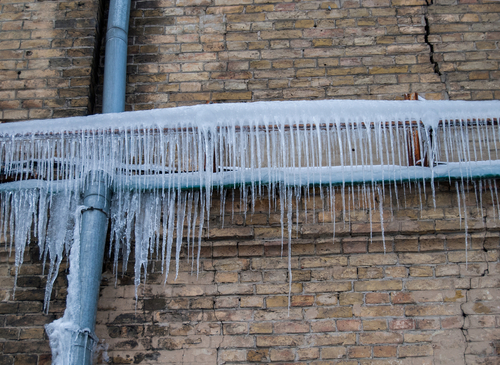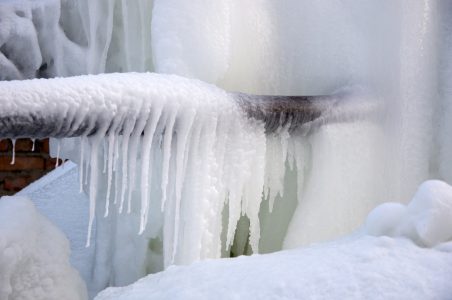Crucial Advice to Avoid Frozen Pipes in Cold Weather: Specialist Guidance
Crucial Advice to Avoid Frozen Pipes in Cold Weather: Specialist Guidance
Blog Article
Here down the page you will discover additional professional insight related to Preventing and dealing with frozen pipes.

Cold weather can ruin your plumbing, particularly by freezing pipelines. Below's exactly how to stop it from occurring and what to do if it does.
Intro
As temperatures decrease, the risk of icy pipes boosts, possibly bring about costly repair work and water damages. Recognizing exactly how to avoid icy pipelines is vital for house owners in cool environments.
Prevention Tips
Insulating at risk pipelines
Wrap pipes in insulation sleeves or make use of heat tape to secure them from freezing temperatures. Focus on pipelines in unheated or external locations of the home.
Heating methods
Keep interior rooms appropriately warmed, especially locations with plumbing. Open up cabinet doors to allow cozy air to circulate around pipes under sinks.
Just how to determine icy pipes
Try to find decreased water circulation from faucets, uncommon odors or noises from pipelines, and noticeable frost on exposed pipes.
Long-Term Solutions
Architectural adjustments
Take into consideration rerouting pipes far from outside walls or unheated locations. Add extra insulation to attic rooms, basements, and crawl spaces.
Upgrading insulation
Purchase high-grade insulation for pipes, attics, and wall surfaces. Proper insulation helps maintain constant temperatures and lowers the risk of icy pipes.
Safeguarding Outside Pipes
Yard pipes and outdoor taps
Disconnect and drain pipes yard hose pipes prior to winter season. Install frost-proof spigots or cover outdoor taps with insulated caps.
Understanding Frozen Pipelines
What creates pipes to ice up?
Pipes ice up when revealed to temperatures below 32 ° F (0 ° C) for extended periods. As water inside the pipelines ices up, it broadens, taxing the pipeline walls and potentially creating them to break.
Risks and damages
Icy pipelines can cause water system disturbances, property damage, and pricey fixings. Burst pipelines can flooding homes and create substantial architectural damages.
Indicators of Frozen Water Lines
Determining frozen pipes early can stop them from bursting.
What to Do If Your Pipelines Freeze
Immediate activities to take
If you believe icy pipelines, maintain faucets open up to ease stress as the ice thaws. Utilize a hairdryer or towels soaked in hot water to thaw pipes gradually.
Verdict
Avoiding icy pipelines needs proactive actions and quick feedbacks. By comprehending the reasons, indicators, and safety nets, property owners can secure their pipes during winter.
Helpful Tips to Prevent Frozen Pipes this Winter
UNDERSTANDING THE BASICS: WHY PIPES FREEZE AND WHY IT’S A PROBLEM
Water freezing inside pipes is common during the winter months, but understanding why pipes freeze, and the potential problems it can cause is crucial in preventing such incidents. This section will delve into the basics of why pipes freeze and the associated problems that may arise.
THE SCIENCE BEHIND FROZEN PIPES
When water reaches freezing temperatures, it undergoes a physical transformation and solidifies into ice. This expansion of water as it freezes is the primary reason pipes can burst. As the water inside the pipe freezes, it expands, creating immense pressure on the walls. If the pressure becomes too great, the pipe can crack or rupture, leading to leaks and water damage.
FACTORS THAT CONTRIBUTE TO PIPE FREEZING
Low Temperatures: Extremely cold weather, especially below freezing, increases the risk of pipes freezing. Uninsulated or Poorly Insulated Pipes: Pipes located in unheated areas, such as basements, crawl spaces, or attics, are more prone to freezing. Insufficient insulation or lack of insulation altogether exacerbates the problem. Exterior Wall Exposure: Pipes running along exterior walls are susceptible to freezing as they encounter colder temperatures outside. Lack of Heating or Temperature Regulation: Inadequate heating or inconsistent temperature control in your home can contribute to frozen pipes. PROBLEMS CAUSED BY FROZEN PIPES
- Pipe Bursting: As mentioned earlier, the expansion of water as it freezes can cause pipes to burst, resulting in significant water damage.
- Water Damage: When pipes burst, it can lead to flooding and water damage to your property, including walls, ceilings, flooring, and personal belongings.
- Structural Damage: Prolonged exposure to water from burst pipes can compromise the structural integrity of your home, leading to costly repairs.
- Mold and Mildew Growth: Excess moisture from water damage can create a favorable environment for mold and mildew growth, posing health risks to occupants.
- Disrupted Water Supply: Frozen pipes can also result in a complete or partial loss of water supply until the issue is resolved.
WHY CERTAIN PIPES ARE MORE PRONE TO FREEZING
- Location: Pipes located in unheated or poorly insulated areas, such as basements, crawl spaces, attics, or exterior walls, are at higher risk of freezing.
- Exterior Pipes: Outdoor pipes, such as those used for irrigation or exposed plumbing, are particularly vulnerable to freezing as they are directly exposed to the elements.
- Supply Lines: Pipes that carry water from the main water supply into your home, including the main water line, are critical to protect as freezing in these lines can affect your entire plumbing system.
- Underground Pipes: Pipes buried underground, such as those connected to sprinkler systems or outdoor faucets, can be susceptible to freezing if not properly insulated.
https://busybusy.com/blog/helpful-tips-to-prevent-frozen-pipes-this-winter/

I stumbled upon that blog entry about How To Avoid Freezing Pipes while doing a search on the internet. Are you aware of another person who is excited by Preventing and dealing with frozen pipes? Please feel free to promote it. We appreciate your readership.
Click Here Report this page